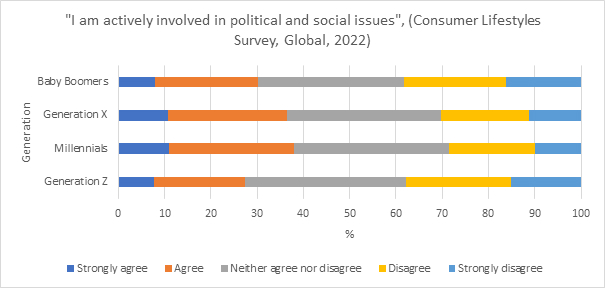Across European football and American major leagues, sponsorship is big business. Euromonitor International’s Sponsorship Valuation model analysed top leagues in 2021 and tracked nearly USD4.8 billion in sponsorship spend across four key categories (this includes team- and league-level deals). There is also another USD1.6 billion in potential assets that has yet to be unlocked within these categories alone.
This level of revenue potential, coupled with a broad restoration of confidence in sponsorship with brands post-pandemic, has led to heightened competition between sports properties to identify and win deals ahead of their peers. Another growing consideration is how to do this in a way that aligns with ethically-conscious sports fans, who increasingly look to their favourite teams and athletes to hold a mirror to the social and political issues of the day. There are two data-driven essentials to achieving this end.
Efficient and intelligent partnership prospectingIntelligent partnership prospecting helps sports properties better understand sectors, companies and consumers, and creates time and space to think about wider sponsorship implications. In 2021, across the more than top 100 leagues in the world, sports teams had on average 27.4 commercial partners. The bulk of activity stemmed from 41 industries, and illustrates how, without a comprehensive strategy in place, sales teams can often be spread thin across a myriad of sectors. While many of these may be well-established, such as food and beverages, business services or automotive, others are quickly emerging. Cryptocurrency sponsorships, for example, saw a 970% increase in sponsorship activity across the top leagues from 2020 to 2021 alone. Industry expertise across such an expanse of opportunities is beyond the means of many partnership sales teams; however, data-driven solutions are increasingly helping even small teams to understand the opportunities faster, and in more depth, than before.
Understanding consumer values
In sports sponsorship, there is increasingly high scrutiny being placed on companies, the markets where they conduct business, the consumers that they serve, and their performance relative to their peers. Sports fans are willing to speak up and voice their concerns about global business practices, and sports properties that find themselves affiliated with what might be considered ‘bad actors’ are not immune from suffering reputational damage.

Source: Euromonitor International Consumer Lifestyles Survey, 2022
For many sports properties, especially those with more highly resourced partnership teams, there is an opportunity to adopt and integrate more stringent corporate social responsibility policies that are reflected within the commercial partner portfolio and echo the stance of fans. As fans (and consumers more widely) become more politically engaged, this might well become the future cost of fan loyalty. Partnership portfolios with an ethical slant will not just appeal more to ethically-conscious consumers, but to other brands whose values are aligned with that property. For many, however, the constant pressure of securing new deals in premium categories remains the overarching objective.
Will purpose-driven sponsorship play a greater role looking forward?In sponsorship, risk will always be a factor. Yet by adopting a disposition that understands fans and consumers, acknowledges social and political issues, and embraces corporate social responsibility, sports properties are putting themselves in a better position to win. Developing this type of strategy requires greater investment in research functions and partnership sales teams and more holistic use of market data to understand consumers and markets. By doing so, sports properties will be in a better position to establish ethical goalposts in a way that works in harmony with financial objectives.
For further insight, read our report, World Market for Professional Sports.

No Comments Yet